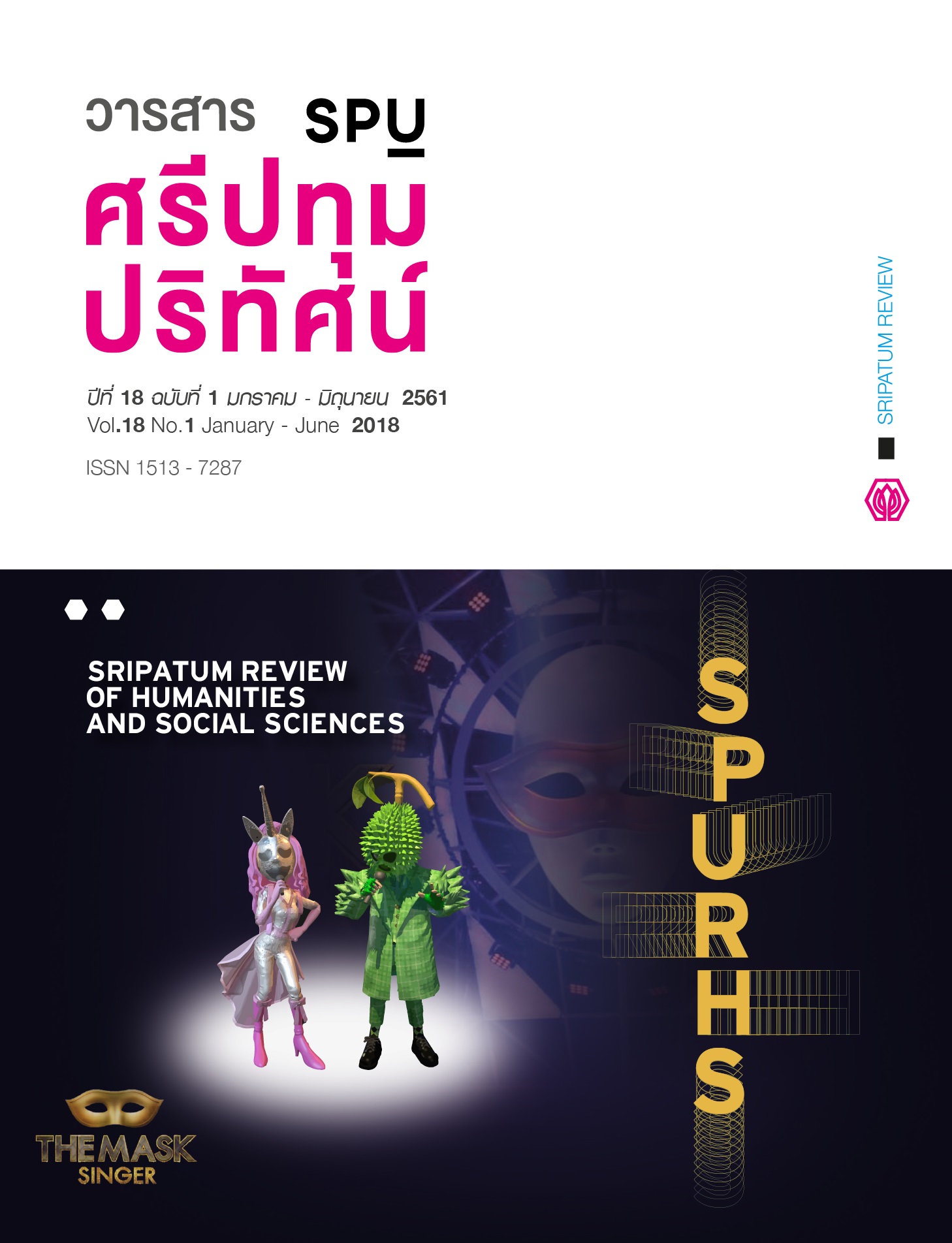THE INFLUENCE OF GOAL COMMITMENT, KNOWLEDGE ACQUISITION AND COMMUNICATION ON ORGANIZATIONAL ATTACHMENT: THE DIRECT SALE REPRESENTATIVES’ SELF-CONCEPT AS THE MEDIATING FACTOR
Main Article Content
Abstract
This research aimed (1) to study the level of goal commitment, knowledge acquisition and communication, (2) to study the self -efficacy and self – esteem, and (3) to study the effects of goal commitment, knowledge acquisition and communication via self-efficacy and self-esteem on organization attachment. The sample consisted of 420 direct sale representatives in multi-level marketing in Bangkok Metropolis. The research instrument was a questionnaire. The confirmatory factor analysis technique was used to confirm the congruence of theoretical model. The data were analyzed using the Structural Equation Modeling (SEM). The results showed that the structural equation model was consistent with the empirical data, with the two harmonic indexes at a good level. It is a model of quality standards.
Article Details
1. กองบรรณาธิการสงวนสิทธิ์ในการพิจารณาและตัดสินการตีพิมพ์บทความในวารสาร
2. บทความทุกเรื่องจะได้รับการตรวจสอบทางวิชาการโดยผู้ทรงคุณวุฒิ แต่ข้อความและเนื้อหาในบทความที่ตีพิมพ์เป็นความรับผิดชอบของผู้เขียนแต่เพียงผู้เดียว มิใช่ความคิดเห็นและความรับผิดชอบของมหาวิทยาลัยศรีปทุม
3. การคัดลอกอ้างอิงต้องดำเนินการตามการปฏิบัติในหมู่นักวิชาการโดยทั่วไป และสอดคล้องกับกฎหมายที่เกี่ยวข้อง
References
Bandura, A. 1997. “Self-efficacy and health behaviour.” In A. Baum, S. Newman, J. Wienman, R. West, & C. McManus (Eds.), Cambridge handbook of psychology, health and medicine. Cambridge University Press.160-162.
Beverly, J. I., Genevieve, B.,Duffy, J.A., and Trautman, D. 2002. “Diane.” Journal of Educational Administration, 40(4/5), 304.
Chourouk, M. 2014. "Reshaping the Village Test for investigating service brand attachment", Qualitative Market Research: AnInternational Journal, 17(4), 393 – 409.
Donald, G. G., and Jon, L. P. 2013. "Focus of attention at work and organization-based self-esteem," Journal of Managerial Psychology. 28(2), 110 – 132.
Emerson, R.M.1976. Social Exchange Theory. Annual Review Inc. Retrieved July 2, 2013.
House, R, J., and Mitchell, T. R. 1974. “Path-Goal Theory of Leadership.” Contemporary Business, 3, 81- 98.
Isabel, D.W. and Rechberg, J.S. 2014. "Appropriation or participation of the individual in knowledge management", Management Decision, 52(3), 426 – 445.
Kandlosi, N.S.E., Ali, A.J. and Abdollahi, A. 2010. “Organizational citizenship behavior inconvern of communication satisfaction” International Journal of Business and Management, 5(10), 51-61.
Keith, A.C., Nicole, M. and Jeylan, T. M. 2009. "Adolescent work experience and self-efficacy", International Journal of Sociology and Social Policy, 29(3/4),164 – 175.
Olivia, F.L., James, A.T., Rajeshekhar,J. 2010. "Goal orientation and organizational commitment" International Journal of Organizational Analysis, 18(1), 129 –150.
Sias, P.M. 2005. “Workplace relationships quality and employee information experience”, Communication Studies, 56(4), 375–395.
Sutapa, D., Kim Leng, P., and Michael, Y.L.C. 2009. "Standardizing FM knowledge acquisition when information is inadequate",Facilities, 27(7/8), 315 – 330.
Tanja, B., and Kleingeld, A. 2011. "Goal-setting in practice", Personnel Review, 40(3), 306 – 32


